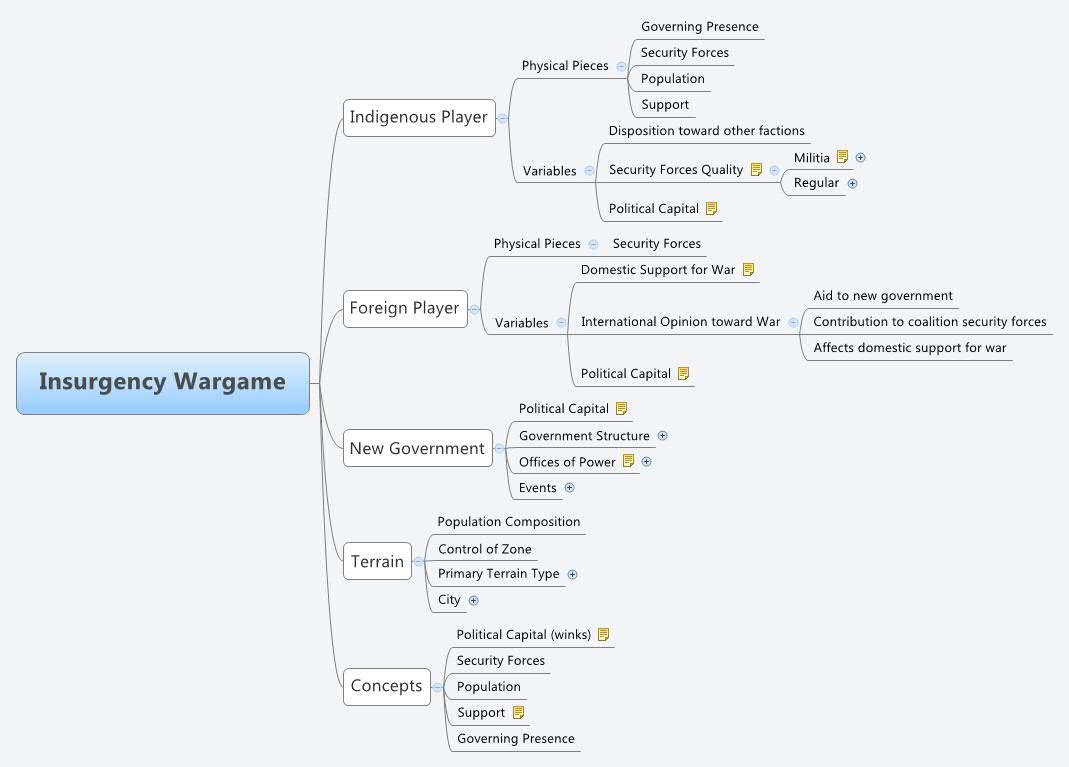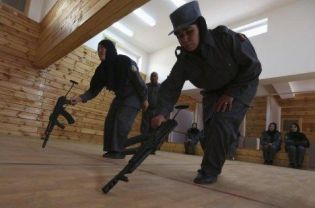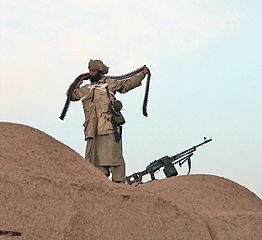Reorientation: the next step in American grand strategy?
The US’s military and political goals in Afghanistan in Iraq have always been expressed in fairly nebulous terms, but the current behind-the-doors goal seems to be to simply draw down and get out as fast as the transfer of security responsibilities will allow. The security situation in Afghanistan in particular has been vehemently uncooperative towards that aim, but there is no doubt that at some point, the US will be leaving.
If there are policymakers in the administration with an American grand strategy in mind, what might come after Iraq & Afghanistan? Reorientation.
The US has shifted its resources and doctrine towards facing the threat of violent non-state actors, but traditional security challenges still loom on the horizon. The accelerating shift from a unipolar world to a multipolar one is a very traditional foreign policy issue, but we’re too busy swatting gnats in the backyard to notice the strangers gathering on the lawn. A period of reorientation will shift of our focus back to facing military and economic competition from rising states like the BRIC countries. But what would this “Reorientation” stage mean for our current security priorities?
…and now we return to our regularly scheduled program.
Special Operations Forces, drones, and CIA paramilitary teams are better tools for fighting terrorists hiding in caves and leaders of non-state groups than a battalion of the world’s best Marines with close air support. But when it comes to asserting military potential to other states, more “traditional” assets win the day.
It’s a cruel coincidence, then, that a reorientation of our military’s mission focus would come at a time when defense budgets are almost certainly poised to take a cut. The massive influx of money into the DoD occurred during the counter-terrorism and counter-insurgency days, but tomorrow’s potential threats will be from states with budgets and professional militaries. No Congress or President would risk looking “weak” by underfunding defense, so cuts will likely come from trimming low-priority (to the military) and unpopular (to policymakers) programs.
I would expect to see fewer “Future Warrior” programs for one, and not only because “futurism” is no longer in vogue in the defense establishment. Funding for ballistic missile defense has been steadily increasing over the past few years, with $10.7 billion requested for 2012 (PDF). Questions about its efficacy aside, missile defense represents a huge investment to counter a traditional military threat that only other governments can really employ. If defense austerity is on its way, the DoD may have to find more cost-effective methods of countering state-based threats.
Back to you, warlord
Iraq, Libya, and arguably even the long war in Afghanistan lacked the urgency of immediate American national security interests. (Striking the Taliban and al-Qaeda after 9/11 was certainly in our interest, but the amount of money and number of lives lost in the 10 years since then are not worth any goal we’ve sought to achieve in Afghanistan.) We’ve cooperated with governments across the Middle East to combat terror networks, most notably in Yemen when a CIA drone managed to take out Anwar al-Awlaki.
Reorientation will mean giving up much of this hands-on, direct role in “localized” arenas like Yemen. Providing military aid is cheap, but dividing actual military assets among a dozen smaller theaters threatens the DoD’s ability to counter the budding resources of rising states. Building drones and putting immense wear and tear on materiel in peripheral battlefields while countries like China and Iran ramp up their naval capabilities is not a winning strategy.
While NATO and Israel will continue to have dedicated attention from the US, our allies in lower-priority areas will find themselves having to rely less on US patronage and direct US involvement. Our focus would have to turn to Africa, which is heavily courted by China, and Central Asia. It will be like Cold War Chess all over again. Local warlords and insurgent groups will serve as convenient proxies when it isn’t feasible to commit US troops. The threshold for deploying US forces will be even higher now, after the sour experiences of Iraq and post-2002 Afghanistan.










